Berbatov: This is my mission
In an exclusive interview with Sky Sports, Dimitar Berbatov discusses racism, the women’s game and his ambition to become the president of Bulgarian football
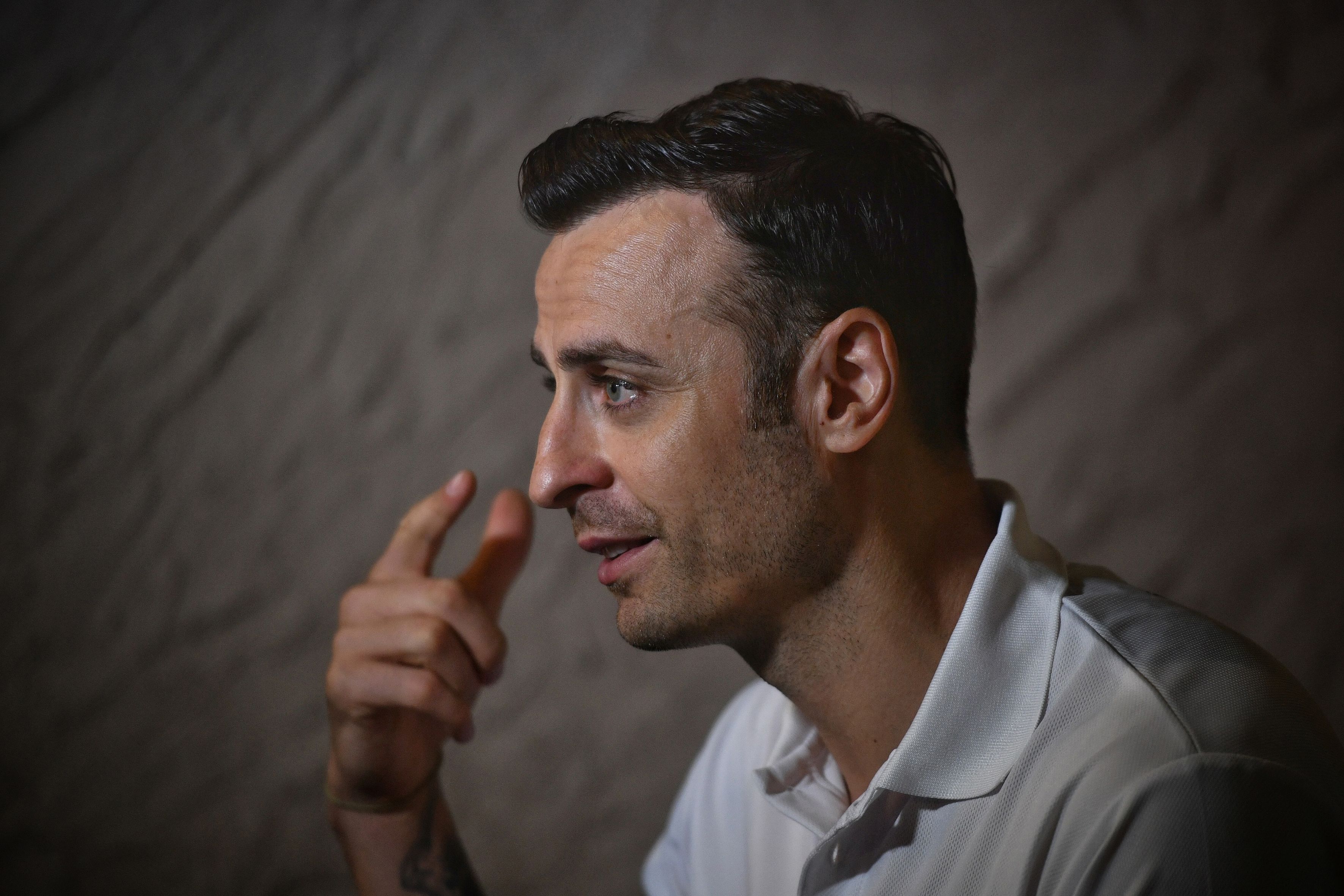
It was evening in Plovdiv in early September and Bulgaria’s women were facing another defeat. This time it was an 8-0 loss to Germany. The explosion of interest in the women’s game was not felt that night but there was a famous face among the sparse crowd.
“I went to the game because I wanted to see how our national team can compare to one of the best,” the legendary Bulgarian footballer Dimitar Berbatov tells Sky Sports.
“Unfortunately, we are far away from what we should be doing and the attendance was not good. Some of the biggest attendances around the world this past year have been in women’s football. This was around one hundred people including me.”
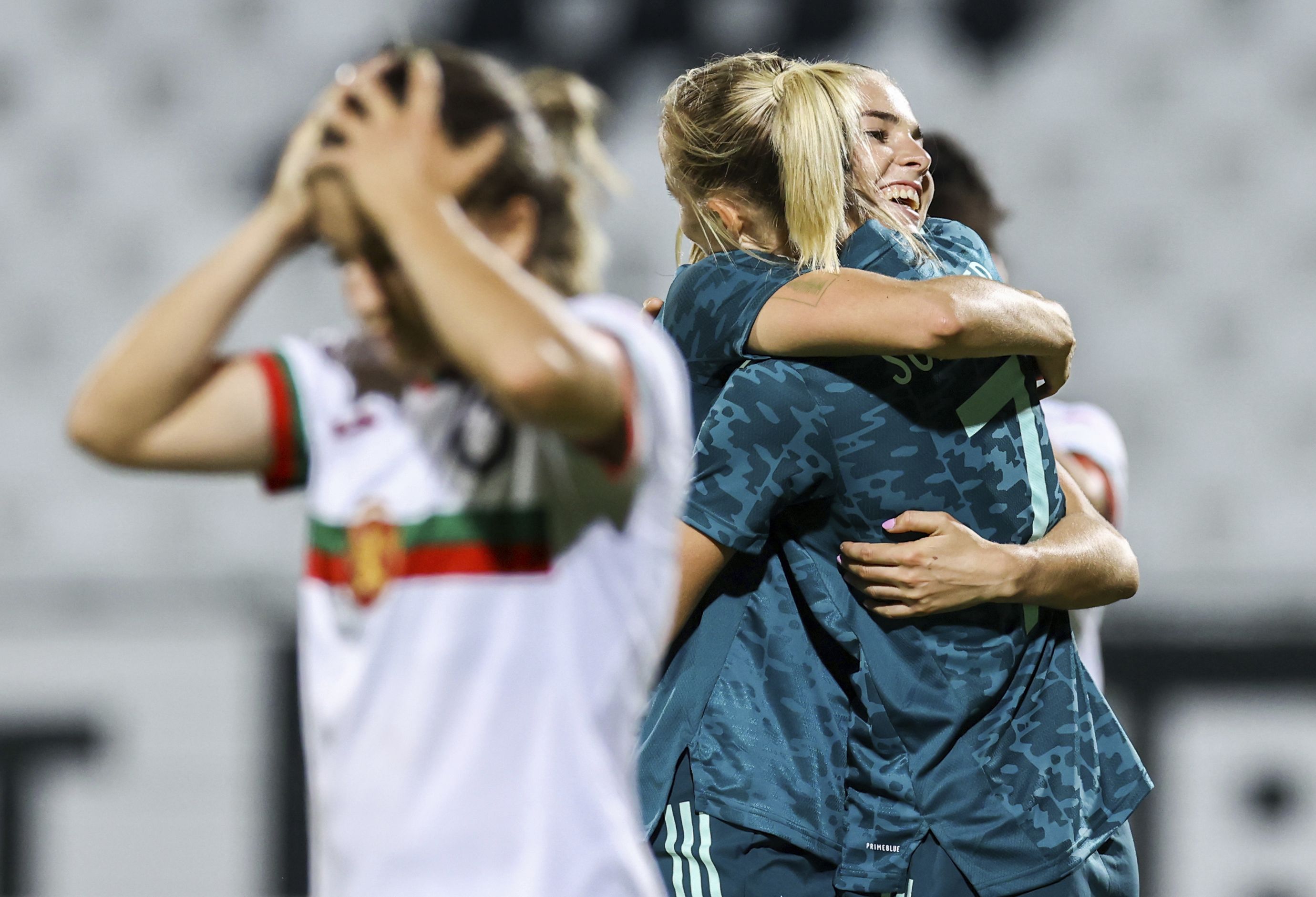
Berbatov’s presence in Plovdiv is a detail worth mentioning because this is his life now. Perhaps you remember him as the willowy figure who graced the Premier League with Tottenham and Manchester United, a mercurial talent who made the game look easy.
He was back in the country recently to play in a legends game against Liverpool at Anfield and you could be forgiven for assuming this is typical – sauntering around Europe, maybe evenings on a yacht in Monaco. The reality for Berbatov is rather different.
He is driven by his ambition to become the next president of Bulgarian football.
“You reach a time in life where you realise you need to step up,” he explains.
“I consider it a duty to myself and to the Bulgarian people. My life consists of touring the country, speaking to people and finding out what the problems are and how they can be fixed. It is about showing them that the change is here and it is necessary.
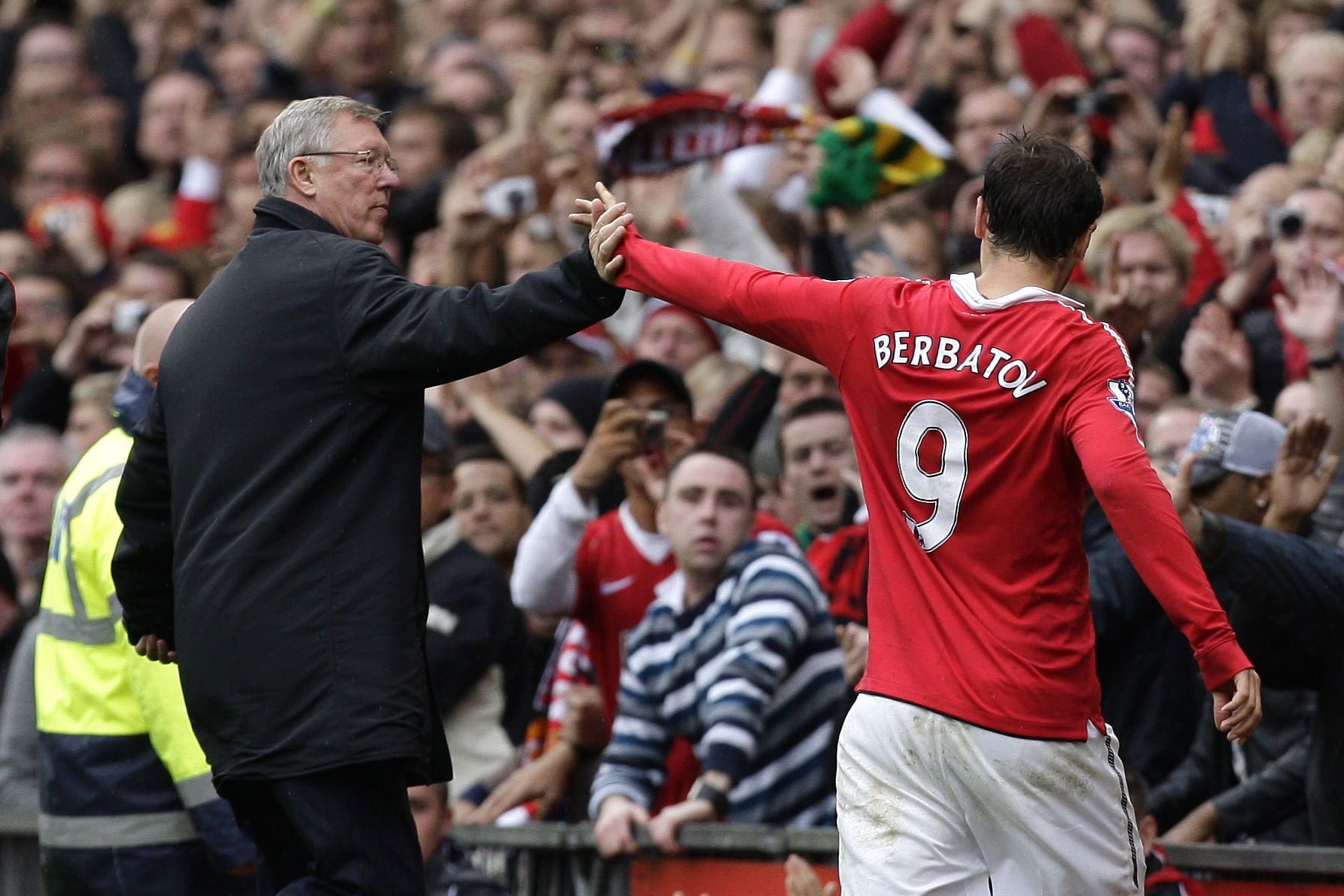
“My mind was strictly on the pitch as a player. Slowly but surely you notice things around you and they play on your mind. Sometimes you forget about it and you go and play your football. Next time, the problem is still there. Maybe it is a bigger problem now.
“You start to think. When I go back now and I think of the problems we used to have, they are still there but bigger. My mission now is to correct those mistakes so the younger generations coming after me they will not suffer as I did.
“Until we succeed, this is my mission.”
Bulgarian football is in the mire. By the time that Euro 2024 arrives it will have been two decades since the men’s team appeared at a major tournament and this Nations League campaign even featured the ignominy of being held to a draw by Gibraltar.
The days when Hristo Stoichkov and his pals were inspiring football fans all over the globe by reaching the semi-finals of the 1994 World Cup are long gone. If Bulgarian football makes headlines abroad now it is more likely to be for the wrong reasons.
One of the catalysts for Berbatov’s move into the murky world of football administration, might have been that night when England went to play in Sofia in October 2019.
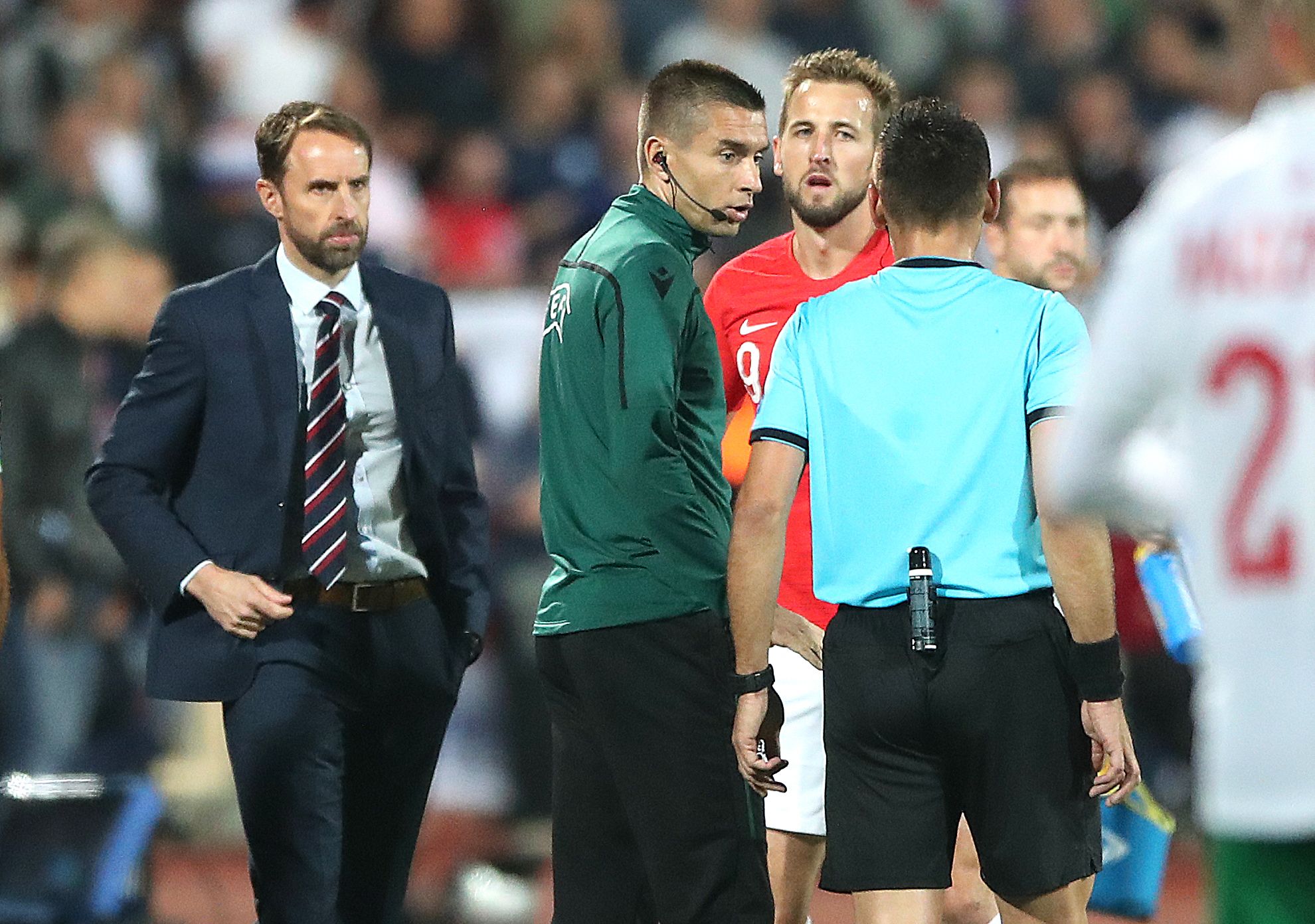
The occasion was marred by overt racism. There were monkey gestures directed at England’s Black players and Nazi salutes. Berbatov was embarrassed by what he saw and angered by the perceived inaction that has followed from the Bulgarian authorities.
“Nothing was done after that to educate and prevent it from happening again. Nobody is working to find a solution to this problem, which is a major problem.
“Racism is one of the biggest issues in world football, not just back home but around the world. It needs to be tackled. We need to have transparency and to stop it as much as possible.
“My team have spoken to federations around the world about how to tackle this problem with educational programmes, bans from football, making stadiums safer. We have it in our programme but nothing is being done on this major issue. This situation is so ridiculous.
“That was a moment where we all felt shamed and disgusted that something like this could happen. Racism is a big problem and it was fully deserved that the president of Bulgarian football resigned after that. But miraculously one-and-a-half years later he came back as if nothing had happened. It was like he was on vacation or something.”
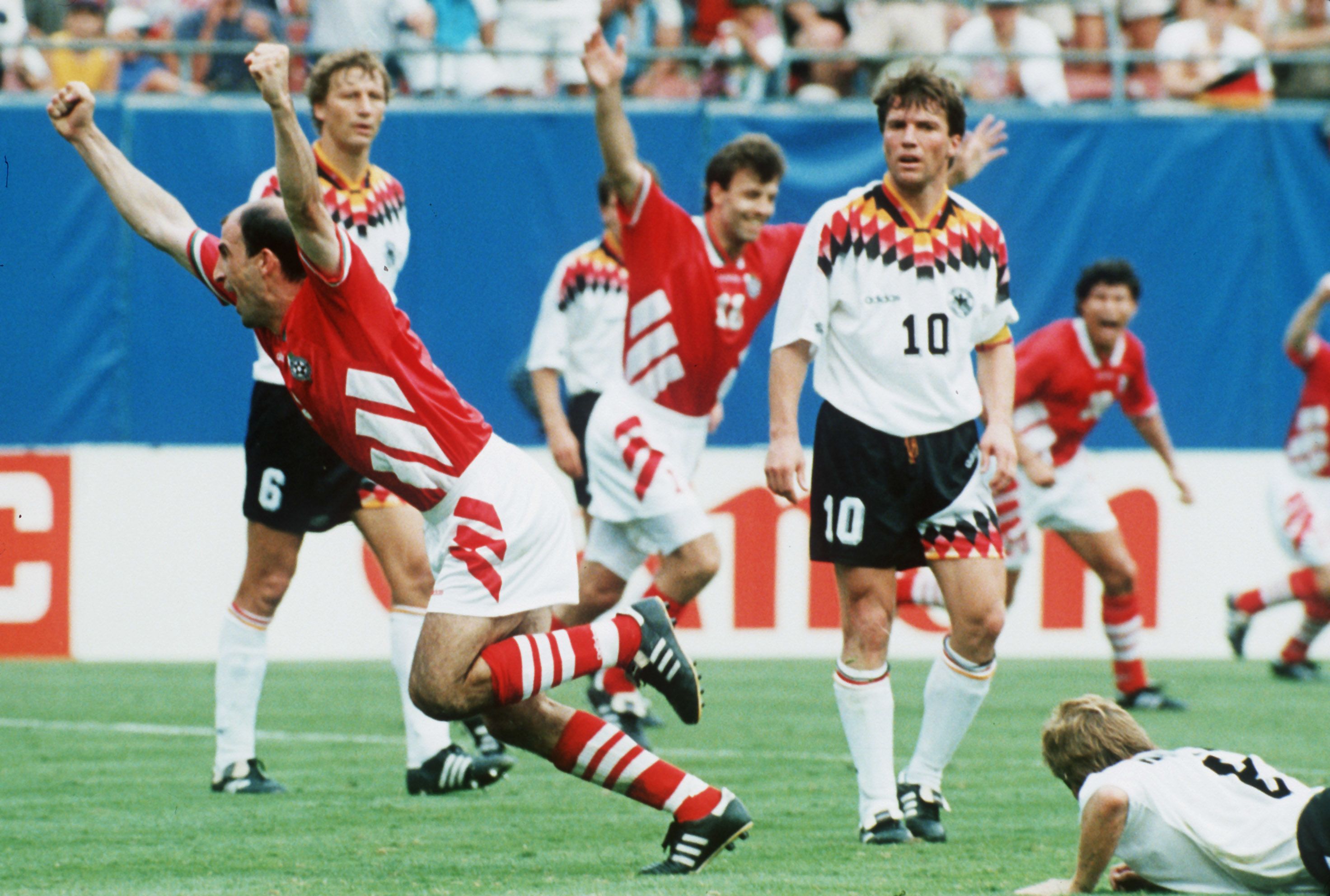
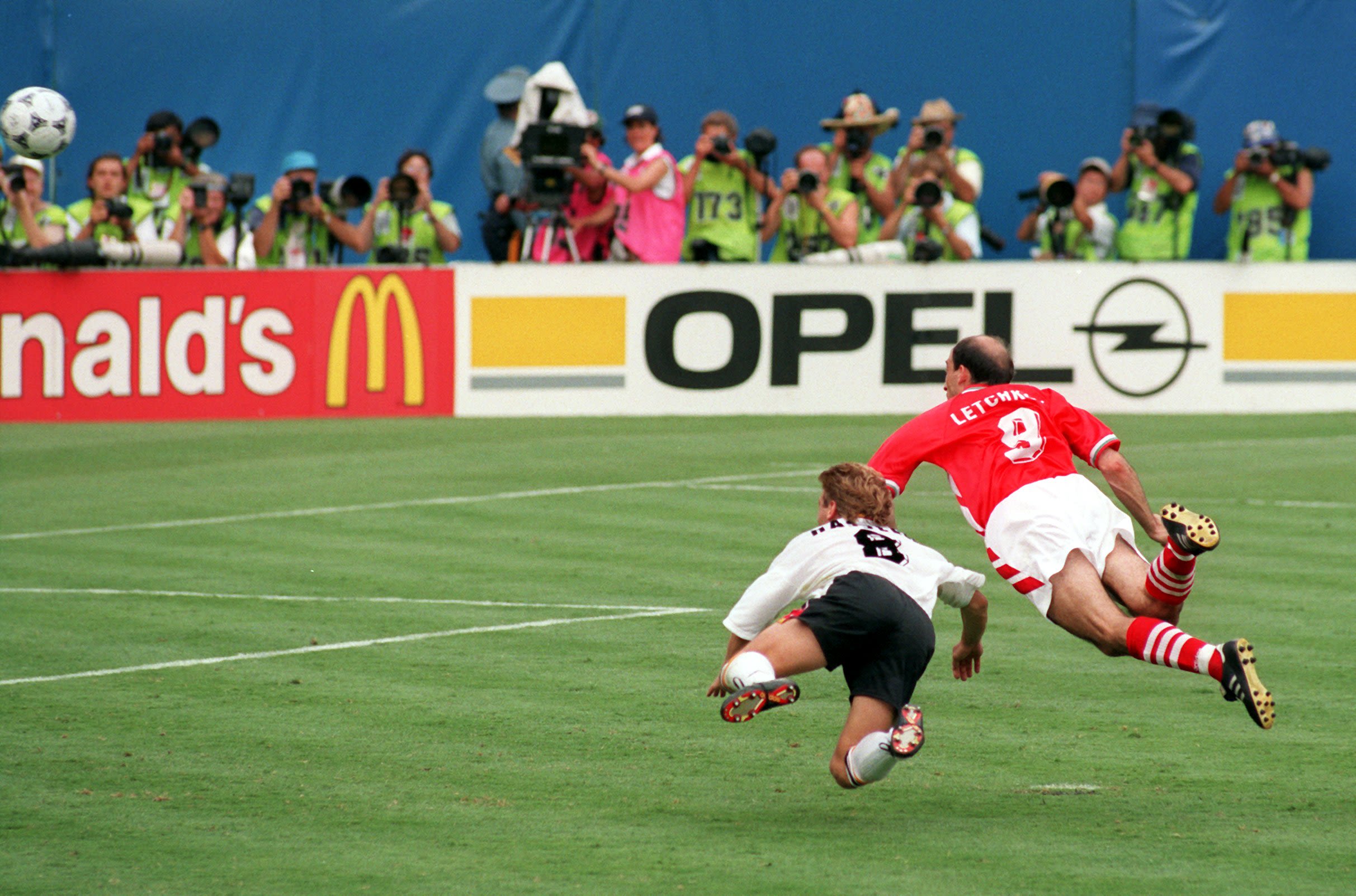
The man to whom Berbatov refers is Borislav Mihaylov, goalkeeper from that famous team of ’94 turned president of Bulgarian football for the past 17 years. His long period in charge has coincided with the country's absence from major tournaments.
But Berbatov does not see it as a coincidence.
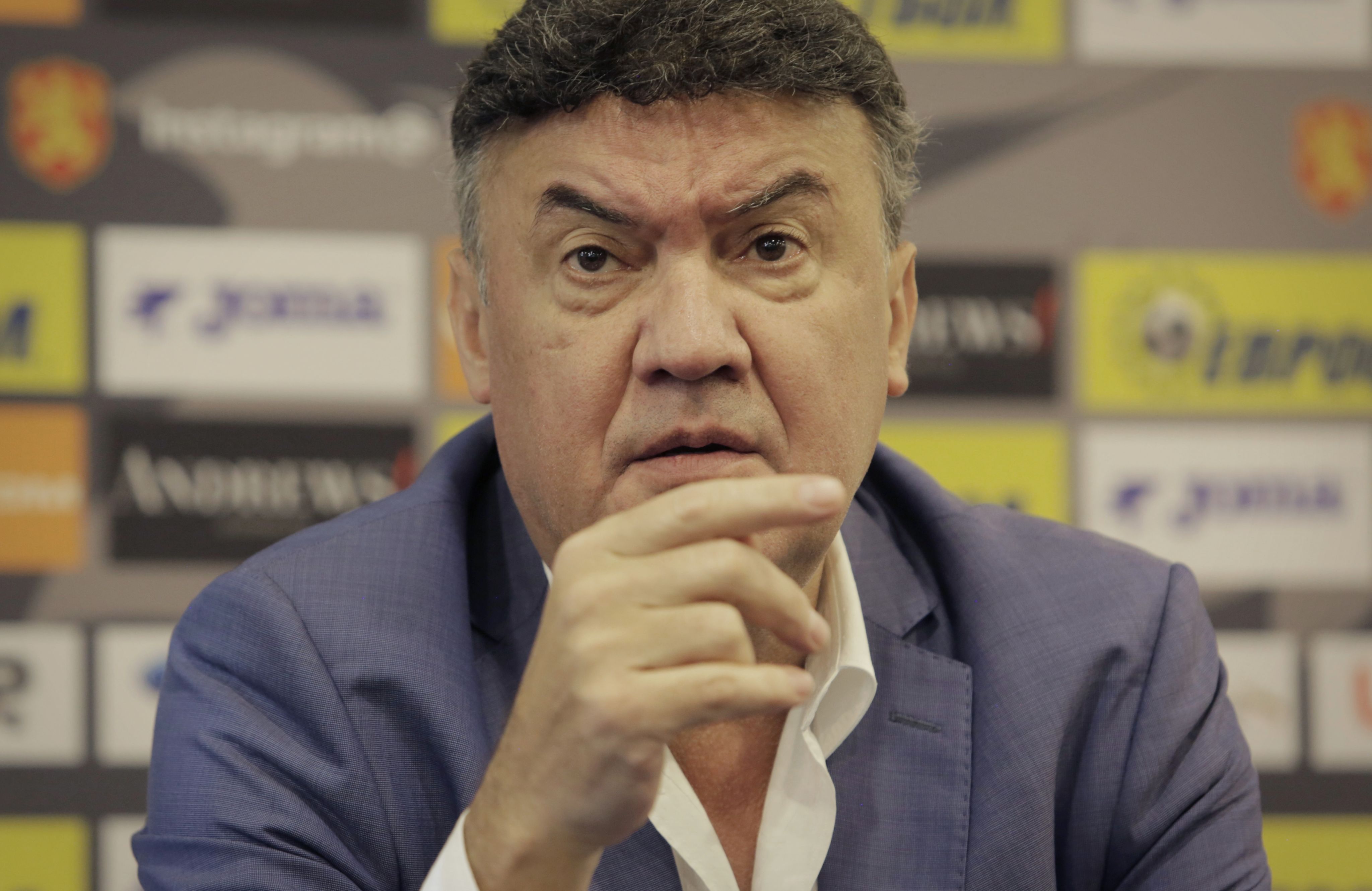
“When you build a toxic culture, you get infected. If you want to stop that, you have to cut off the head – metaphorically speaking – and start to build something new. The football community is 100 per cent behind us because they see us as the new beginning.
“The time for change is long overdue. It needs to happen.”
This is Berbatov’s cause now.
Former colleagues have noted the change in him.
“I was in a dressing room with him for a few years,” Gary Neville tells Sky Sports.
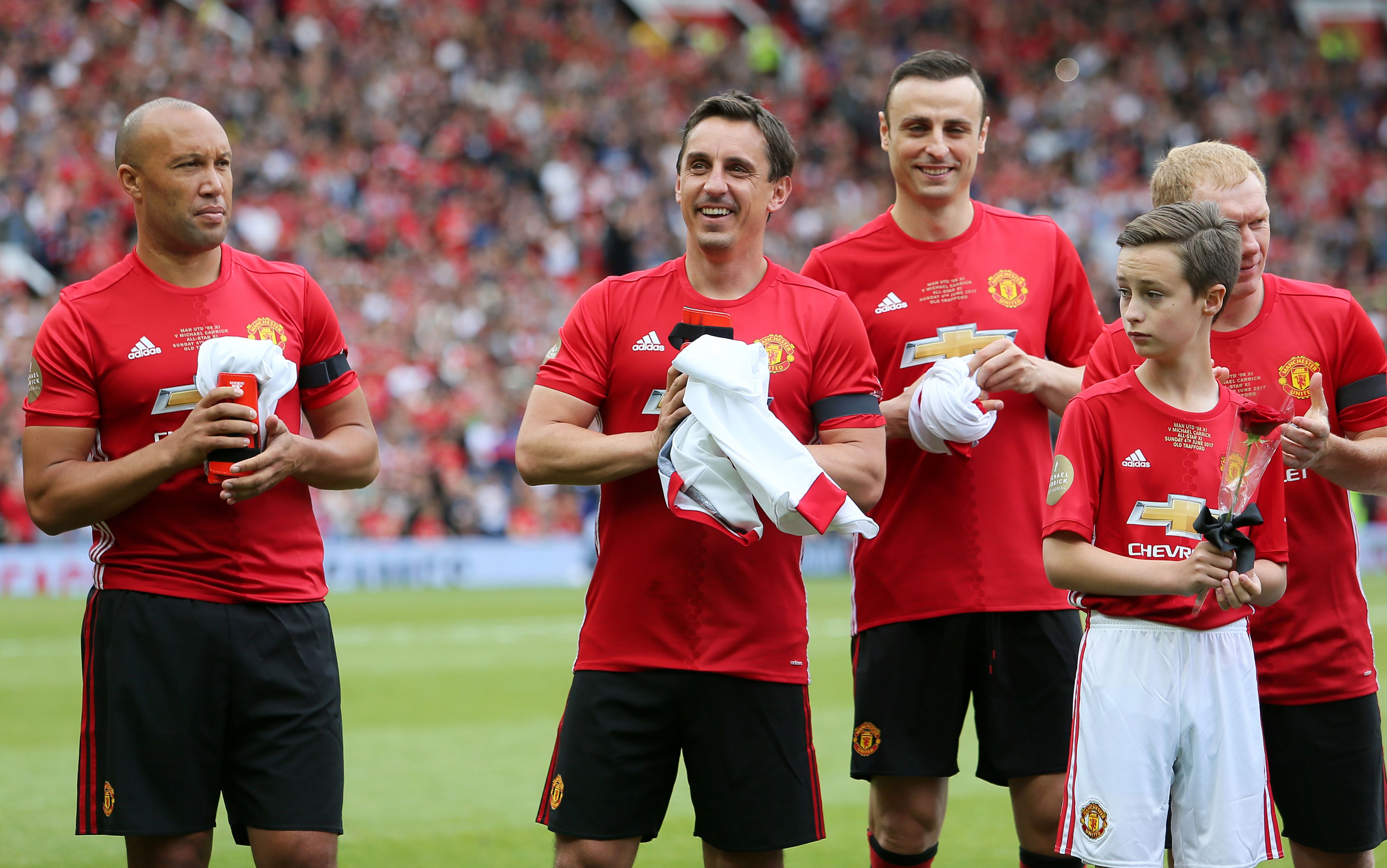
“I got very few words out of him. He used to come in during the morning and he was very quiet. But I played with him at Soccer Aid a few months ago. I was drinking a beer, he was drinking water. He is very fit, Dimitar.
“And we spoke for an hour about what he was planning to do with the Bulgarian FA and how there were below-par standards there and he wanted to reform it.”
Berbatov speaks with real poise on the subject. He is determined and passionate, more so than was ever obvious in his playing days. He is more exercised by this than he could ever have been by a career in management. He is not ashamed to say that he is consumed by it.
“It is the same as when I was a football player. I was obsessed with football. In the process, sometimes your friends and your private life suffer because you are obsessed with something. Now my obsession is trying to modernise Bulgarian football.
“In life as in football, sometimes you have obstacles. Sometimes you overcome those obstacles easily and sometimes it is hard. On the pitch, I made it look easy but only because I practised it a lot. It was hard work and smart work.
“My duty is here and I need to fulfil it. I owe it to Bulgarian football. I said back in the day that one day I would come back and try to fix Bulgarian football. That day is here. I will try to do it and eventually I will succeed. This is my duty.”
He is supported by his old team-mate Stan Petrov, Bulgaria’s most capped player, and Martin Petrov, the former Manchester City winger with 90 caps of his own. The hope is that high-profile figures who are not in it for the money can help Bulgaria find a route out of their problems.
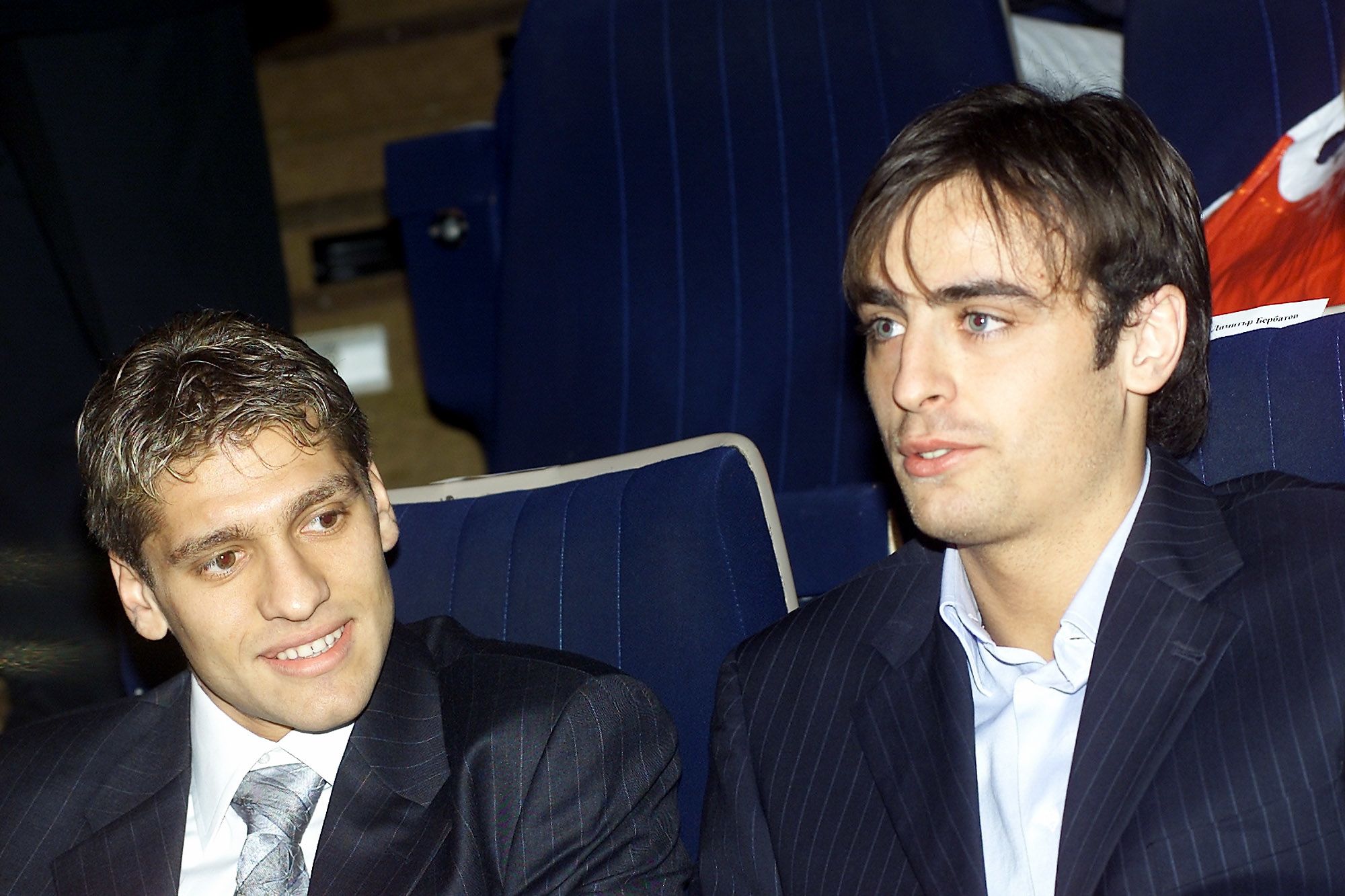
They thought they had found it when forcing an emergency election last October but Mihaylov clung onto power with 241 votes to 230 amid claims that some delegates were ineligible to cast their votes and others were wrongfully denied that opportunity. Berbatov has refused to go away.
He wants elections every four years and a stipulation that nobody can serve more than three terms to prevent a repeat of the current situation. He is the reform candidate and a natural figurehead but what is apparent is that he wants to be much more.
“If you are going to be a good leader you need to listen. This is what I try to do all the time with my team. I try to listen and I try to educate myself. If I knew everything I would not need a team. But the power lies when you come together as a team.”
He is dismayed by the struggles of the national team. He wonders why neighbours Romania appear to be on a better path and sees Croatia and Serbia going to the World Cup despite smaller populations. “To catch up those countries, we have to do much more.”
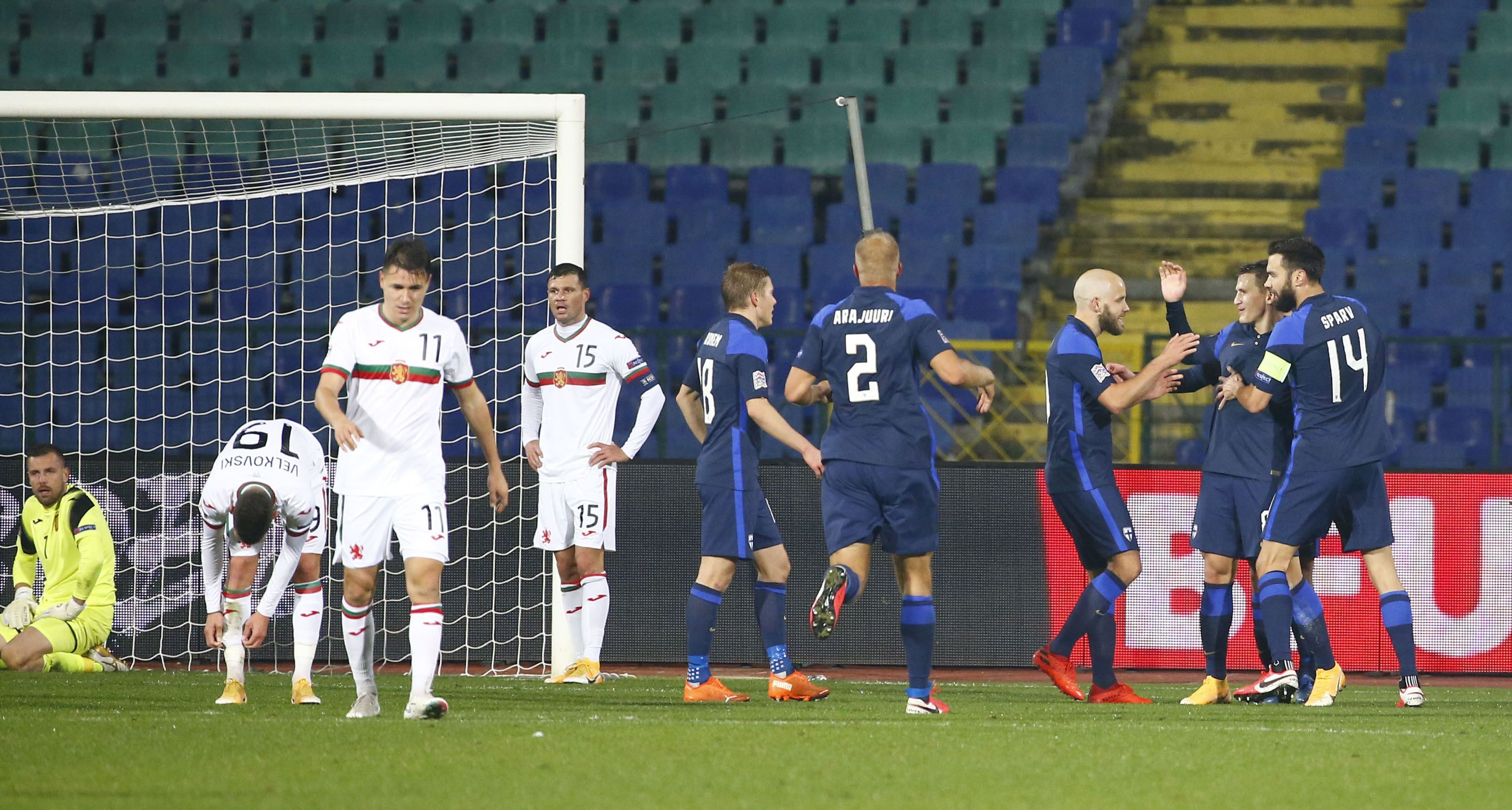
That means more than just changing coaches 13 times in 15 years. Berbatov wants to go deeper in search of solutions. “It shows you that nothing is happening to help the young players coming into the system in grassroots football,” he explains.
“In the end, the face of any federation is the national team. If your national team suffers then something is wrong. When other countries see that problem they try to fix it. Unfortunately, we are not finding the solutions to that problem.
“You start to ask questions. Where is the youth development? Is our league producing enough players? Where are our players internationally? There are no Bulgarians. We still have quality players back home but they need to have the right development.”
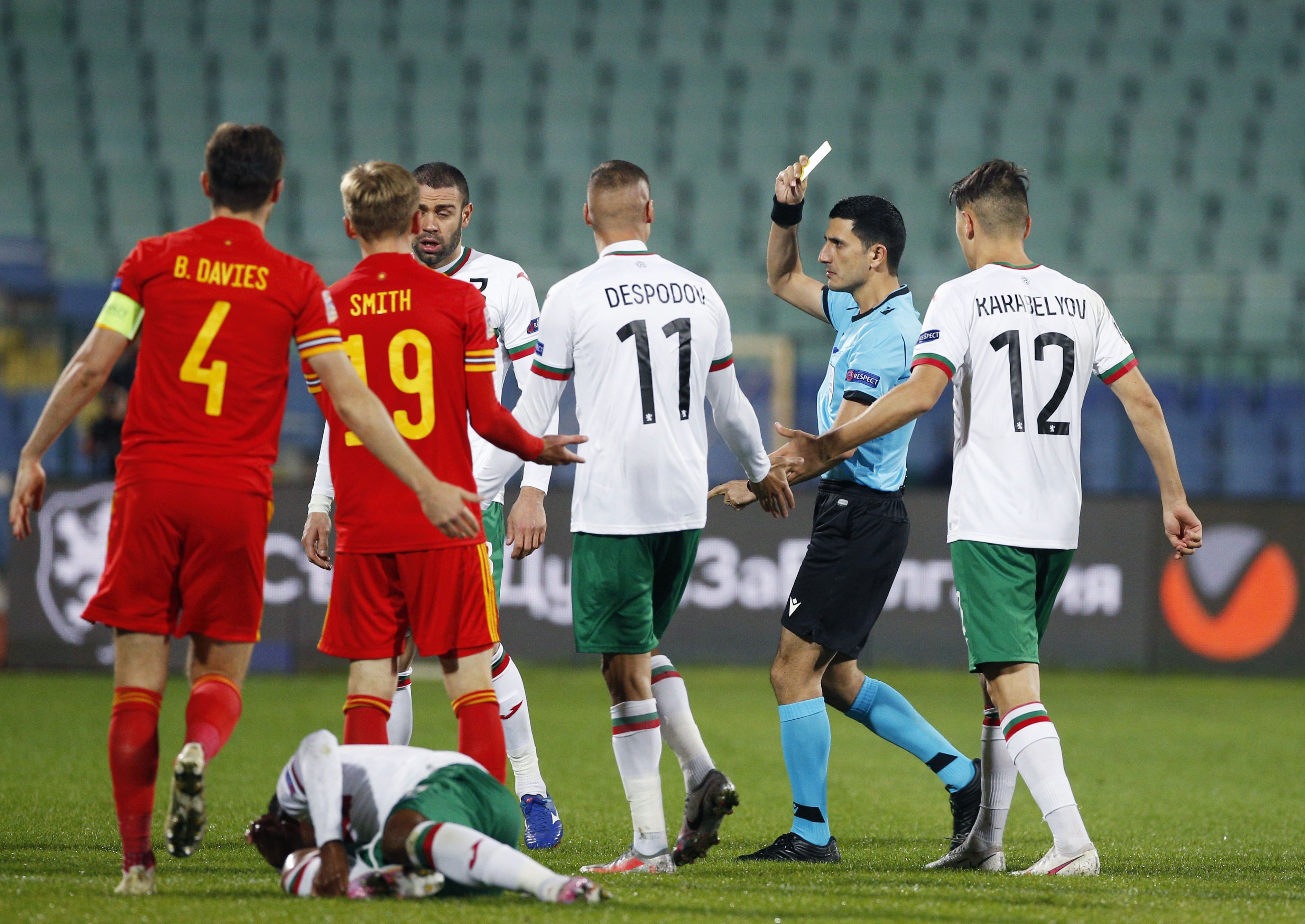
He believes in the potential of Bulgarian football.
“The talent is there, trust me,” he adds.
“I am not saying it because I am Bulgarian. I know. I go to games. Football is a religion in Bulgaria. We have people who are emotionally invested in our football. We have the base. But unfortunately the infrastructure is preventing football from moving forward.”
He has identified the development phase as the point at which players in the country fall behind, that transition period from 17 and 18 to first-team football. “This is where some of the players get lost.” The challenge is to find the path again. It will take time.
Investment is needed but better connections to football’s governing bodies and the support of the government will help . Companies will believe in Bulgarian football again if it is cleaned up. “With investment in the right people, results will follow,” says Berbatov.
“We will see the results. Maybe not in the first or second year because it is a long process. It is going to be a long journey. Football is the biggest sport in the world and we want to go back to the winning ways of 1994 and having a team that all the world will know.
“Eighteen years is a long time. I want to see our national team qualify for a major tournament. I want to see young players go to the big leagues and succeed. I want to see grassroots football developed to produce good players and good human beings.
“I want to see our football develop. I want happy people going with their families to the stadium and younger generations wanting to play football. This is how you put the fire in the kids. All this makes me excited about what I am doing right now even if it is hard.”
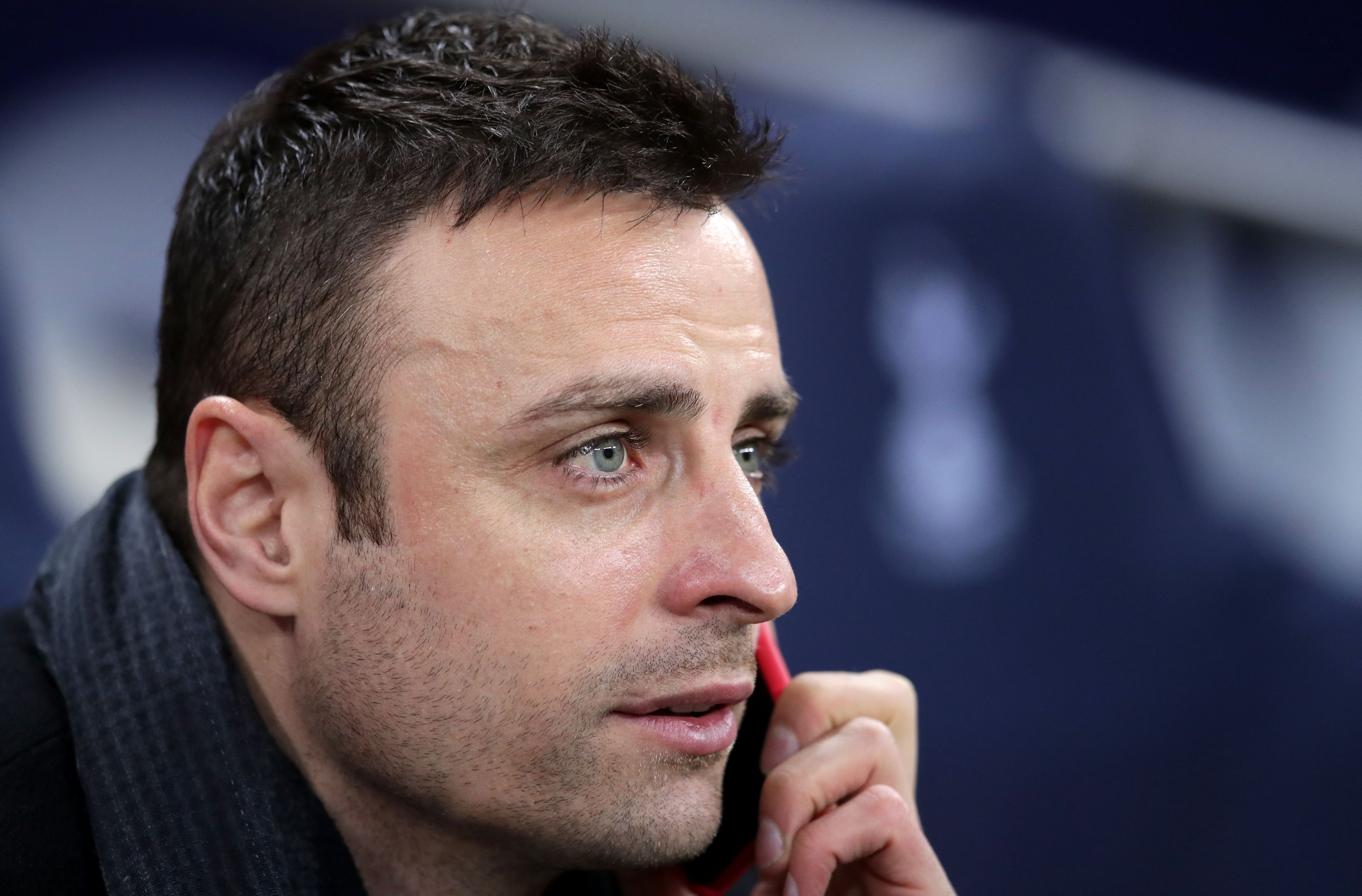
It is the biggest challenge of his distinguished career, he freely admits. But if he can succeed and those evenings spent watching the women’s team in the Plovdiv night do pay off, it will also be his biggest accomplishment. For Berbatov, it is too important to stop now.
“It is a major challenge but I am pretty sure I can pull it off,” he says.
“I want to do it. I have to do it. And I will do it.”


